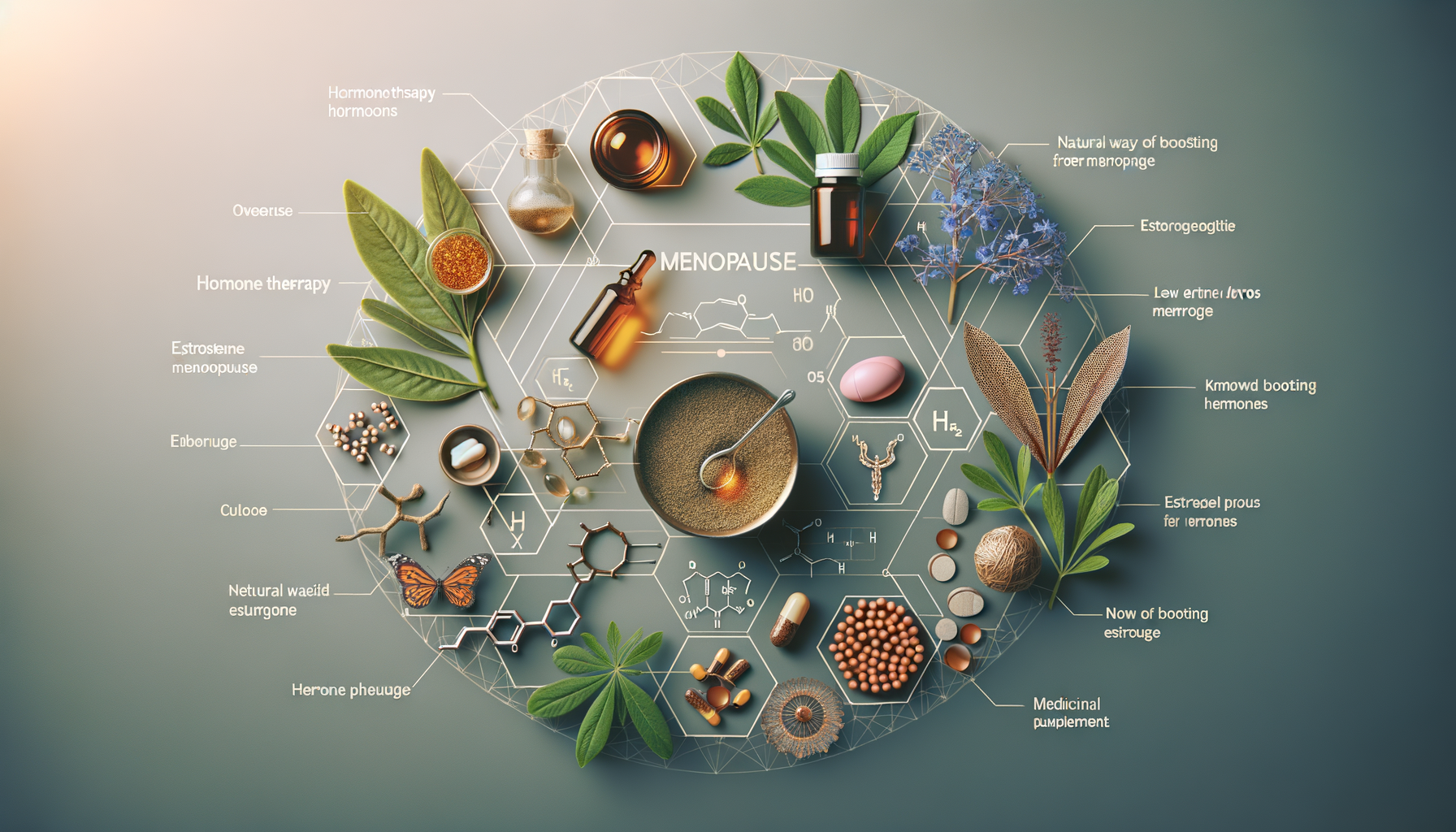Introduction to Low Estrogen After Menopause
As women transition through menopause, the decline in estrogen levels can have a significant impact on their overall well-being. Estrogen plays a crucial role in various bodily functions, and its reduction can lead to symptoms such as hot flashes, mood swings, and bone density loss. Understanding these changes and exploring ways to manage them is essential for maintaining quality of life. This article delves into recognizing low estrogen symptoms, and discusses supplements, hormone therapy, and natural boosters that may help.
Supplements for Low Estrogen
Supplements can be a valuable addition to managing low estrogen levels. They provide nutrients that support hormonal balance and alleviate menopause symptoms. Some supplements that are often considered include:
- Phytoestrogens: These plant-derived compounds mimic estrogen in the body and can be found in supplements containing soy isoflavones or red clover.
- Calcium and Vitamin D: Essential for bone health, these nutrients can help counteract the bone density loss associated with decreased estrogen.
- Black Cohosh: Known for its potential to reduce hot flashes and night sweats, black cohosh is a popular herbal supplement.
It’s important to consult with a healthcare provider before starting any supplement regimen, as they can provide personalized advice based on individual health needs and conditions.
Hormone Therapy for Menopause Symptoms
Hormone therapy is a widely used treatment for alleviating menopause symptoms by replenishing estrogen levels in the body. There are different forms of hormone therapy, including:
- Estrogen Therapy (ET): Often prescribed for women who have undergone a hysterectomy, ET helps in managing hot flashes and other symptoms.
- Estrogen-Progestogen Therapy (EPT): For women with an intact uterus, EPT combines estrogen with progestogen to prevent endometrial cancer risk.
While hormone therapy can be effective, it is not without risks. It is crucial to discuss the benefits and potential side effects with a healthcare provider to make an informed decision. Factors such as age, health history, and symptom severity should guide the choice of therapy.
Natural Estrogen Boosters for Women
For those seeking alternative approaches, natural estrogen boosters can offer a gentler way to manage low estrogen levels. Some natural methods include:
- Dietary Changes: Incorporating foods rich in phytoestrogens, such as flaxseeds, chickpeas, and lentils, can help support estrogen levels.
- Exercise: Regular physical activity can improve mood, bone health, and overall hormonal balance.
- Stress Reduction: Practices like yoga and meditation can help manage stress, which in turn supports hormonal health.
Embracing a holistic lifestyle that includes a balanced diet, regular exercise, and stress management can be beneficial in naturally boosting estrogen levels.
Conclusion: Finding Relief and Balance
Navigating the changes that come with menopause can be challenging, but understanding the options available for managing low estrogen levels can make a significant difference. Whether opting for supplements, hormone therapy, or natural boosters, it’s essential to tailor the approach to individual needs. Consulting with healthcare professionals can provide guidance and ensure that the chosen methods align with personal health goals. By taking proactive steps, women can find relief and maintain balance in their lives during and after menopause.








